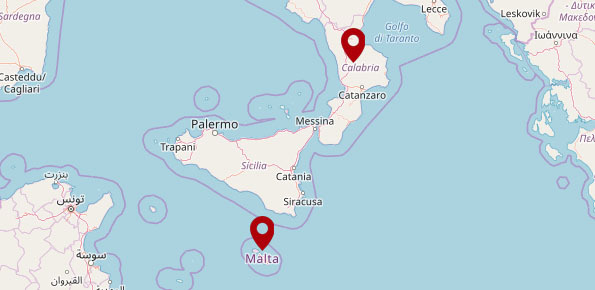From population risk perception to social vulnerability in coastal areas subject to climate change: a proposal for risk management strategies in two Mediterranean regions

Background
Coastal areas are particularly sensitive to climate change. Because these areas have become particularly susceptible to extreme physical phenomena because of a significant increase in human pressure, climate change will cause heightened exposure and vulnerability of the population. The Authorities ought to make strong efforts to: i) take the necessary measures and actions to reduce the negative impacts of the natural phenomena on the coastal areas, which are also due to the climate change; ii) to investigate the factors that influence the communities’ perception of natural hazard and the climate change. Indeed, in order to effectively manage the negative impacts of climate change both considerable scientific know-how and of people’s perception of the risk associated to them is paramount.
Purpose
The aim of this project is the introduction of an Index of Social Vulnerability that will be compiled based on the results of an investigation that will inquire into public perception of natural hazards and related climate change through a survey conducted by means of an on-line questionnaire. Two Mediterranean regions will be considered as target areas: Calabria (Southern Italy) and Malta. These regions show different geomorphological and climatic settings; however, although with different exposure levels, they are both affected by extreme physical phenomena and climate change.
Methods
A questionnaire on the public perception on natural hazard and climate change will be implemented and administered using new technologies and social media. An Index of Social Vulnerability (SVI) will be developed by means of statistical methods. This Index will be based on the answers to specific questions and on the correlations among some of them. The Index could be a multiplicative factor to the ordinary vulnerability of an area, which in this way can increase/decrease the ordinary vulnerability values.
Results
The main expected results and products of the Project are the following:
- Identification of the population’s awareness, perception and preparation concerning the effects that climate change has on coastal areas through online questionnaires;
- Assessment of social vulnerability and development of a specific Index of Social Vulnerability in relation to natural hazards in the target areas (Calabria and Malta) with the support of digital geospatial data;
- Offering useful tools that can be easily understood by not only local authorities but, mainly, to those who apply the planning laws and to those responsible for risk prevention and management;
- Dissemination of the results of the study, especially among the involved population in order to raise awareness and interest around the issues linked to the effects of climate change on the increased frequency of extreme natural events.
Conclusions
The Project is organized in order to synergistically combine the various scientific knowledge and researches of two partner in the context of natural hazard, public knowledge and perception of geo-hydrological risk. Furthermore, the results can be used to perform a wider and more thorough risk analysis that takes into account the potential increase in exposure and vulnerability of coastal areas population. Lastly, the results can be useful both for decision support during extreme natural events and to raise awareness of population around the issues linked to the effects of climate change on the increased frequency of extreme natural events.



 Internal contact person: loredana antronico -
Internal contact person: loredana antronico -